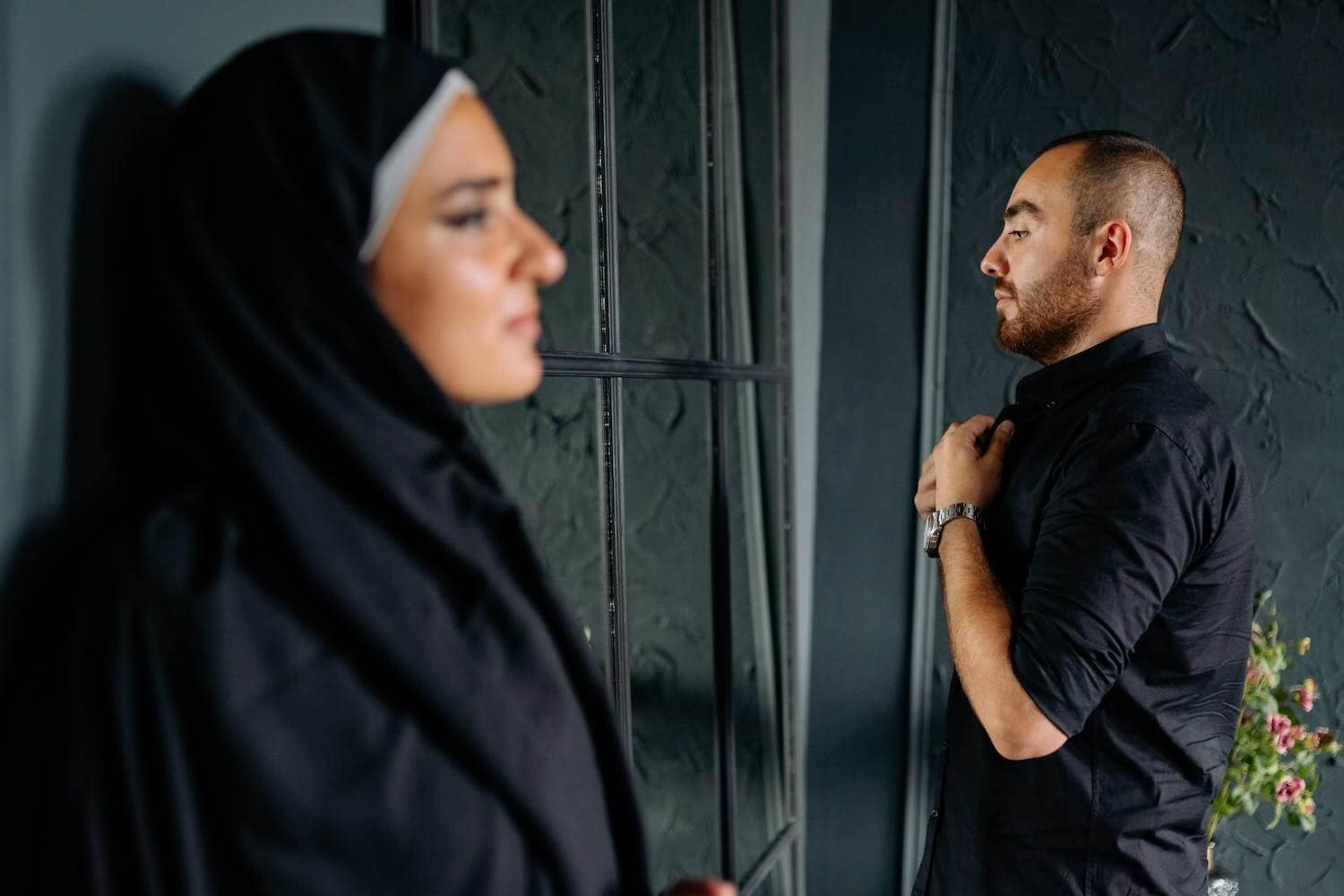Islam indeed recognises divorce, but it is considered a last resort.
Marriage in Islam is seen as a contract and a significant commitment filled with mercy, compassion, and tranquillity. Although divorce is permissible, it is not encouraged and is viewed as a final resort.
🗝️ Key Takeaway: Islam allows for divorce but places a strong emphasis on it being a final option after all efforts at reconciliation have failed.
Forms of Divorce in Islamic Law
There are several forms of divorce in Islamic law, including talaq (unilateral repudiation by the husband), khul’ (mutual divorce), and faskh (dissolution by a religious court).
Each form has specific rules and conditions to ensure justice and fairness for both parties.
🗝️ Key Takeaway: Islamic divorce can take different forms, each with its own set of rules and conditions.
Talaq – Husband’s Initiation of Divorce
Talaq, the most common form of divorce, is initiated by the husband and does not require the wife’s consent.
It involves a waiting period for the wife, during which reconciliation is possible. The husband must provide financial support during this period, and the wife retains her dower.
🗝️ Key Takeaway: In talaq, the husband initiates divorce, but the process includes protections for the wife, such as financial support and dower retention.
Khul’ – Mutual Divorce
In khul’, the wife can initiate divorce by returning her dower or offering compensation to the husband.
This form of divorce is immediate and irrevocable once agreed upon, and both parties have certain financial responsibilities.
🗝️ Key Takeaway: Khul’ provides a way for wives to initiate divorce, balancing rights and responsibilities between spouses.
Also read: Permanent Residency and Divorce Australia: 4-Point Comprehensive Guide
Faskh – Dissolution By A Religious Court
Faskh in Islamic law is a form of divorce granted by a religious court, usually initiated by the wife in cases where the marriage becomes untenable.
Common grounds for faskh include abuse, neglect, or the husband’s failure to fulfill marital obligations.
The process involves a judicial review where the wife presents her case, and if the court finds the reasons valid, the marriage is dissolved.
This ensures that the rights of both parties, especially the wife, are protected under Islamic law.
🗝️ Key Takeaway: Faskh provides a judicial avenue for wives to seek divorce in challenging marital situations.

Is Sharia Law Practiced in Australia?
Sharia law, as a comprehensive legal framework, is not formally implemented in Australia’s national legal system.
However, the Muslim community occasionally adheres to aspects of Sharia within the confines of Australian law, particularly in personal matters like marriage and divorce.
It’s important to note that any religious practices, including those derived from Sharia, must align with the legal requirements of Australian law.
In family law matters, Australian courts remain the ultimate authority.
🗝️ Key Takeaway: While individual Muslims may observe aspects of Sharia in personal matters, it’s within the context of, and subject to, Australian law.
Also read: Grey Divorce Australia
Divorce in Islam: What Is the Process
Divorce in Islam involves several steps, starting with a sincere attempt at reconciliation. If reconciliation fails, the form of divorce (talaq, khul’, or faskh) is chosen based on the circumstances.
In talaq, the husband initiates the divorce, while in khul’, the wife offers compensation for separation.
Faskh requires judicial intervention. All forms involve a waiting period (iddah) to ensure any decisions made are not hasty and to determine pregnancy.
The welfare of children and financial settlements are also key considerations.
🗝️ Key Takeaway: The divorce in Islam is thorough and prioritises reconciliation before moving forward with a planned process that respects both parties’ rights and obligations.
Also read: My Ex Won’t Sign Divorce Papers Australia
Child Custody and Support Post-Divorce
Islamic law pays special attention to the welfare of children in the event of a divorce.
The father is typically responsible for financial support, and custody decisions are made with the children’s best interests in mind, often favouring the mother for young children.
🗝️ Key Takeaway: The welfare of children is paramount in Islamic divorce, with clear guidelines for custody and financial support.
Finalising Divorce and Remarriage in Islam
Once the waiting period is completed, the divorce is finalised. Islam discourages indecisiveness in divorce decisions, encouraging amicable and fair treatment of both parties.
There are limits on remarriage after divorce, particularly after a third divorce, to prevent frivolous separations and reconciliations.
🗝️ Key Takeaway: Divorce in Islam is a structured process with clear guidelines for finalisation and remarriage, emphasising fairness and respect.
Reform and Contemporary Practice
Efforts to reform Islamic divorce laws have focused on restricting unilateral repudiation by men and increasing women’s access to divorce.
While reforms have been made in some Muslim-majority countries, the application and interpretation of these laws can vary significantly.
🗝️ Key Takeaway: Ongoing reforms in Islamic divorce laws aim to balance gender equity and reflect contemporary needs.
Also read: Taking Out House Equity Before Divorce
The Importance of Legal Advice
Navigating the complexities of divorce in Islam underscores the importance of seeking professional legal advice.
This is especially crucial in countries where Islamic law intersects with local legal systems.
Legal professionals can offer guidance that aligns with both religious and civil obligations, ensuring that the rights and responsibilities of all parties are respected and upheld.
It is important for individuals considering divorce to consult with legal experts to understand their rights, responsibilities, and the implications of their decisions within the context of their specific situation.
🗝️ Key Takeaway: Professional legal advice is essential in divorce proceedings to ensure compliance with both Islamic and local laws and to safeguard individual rights and interests.
Director of Melbourne Family Lawyers, Hayder manages the practice and oversees the running of all of the files in the practice. Hayder has an astute eye for case strategy and running particularly complex matters in the family law system.





